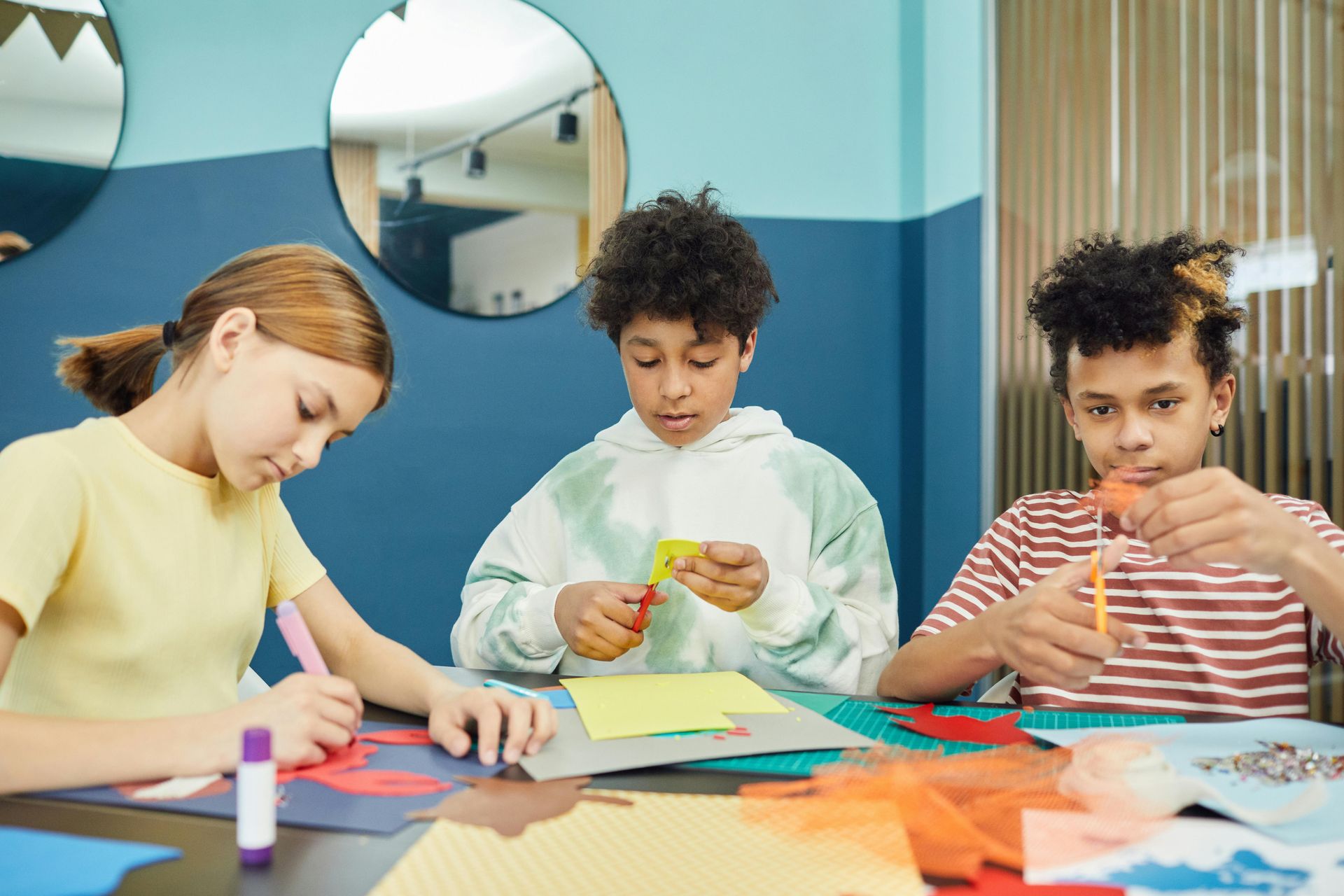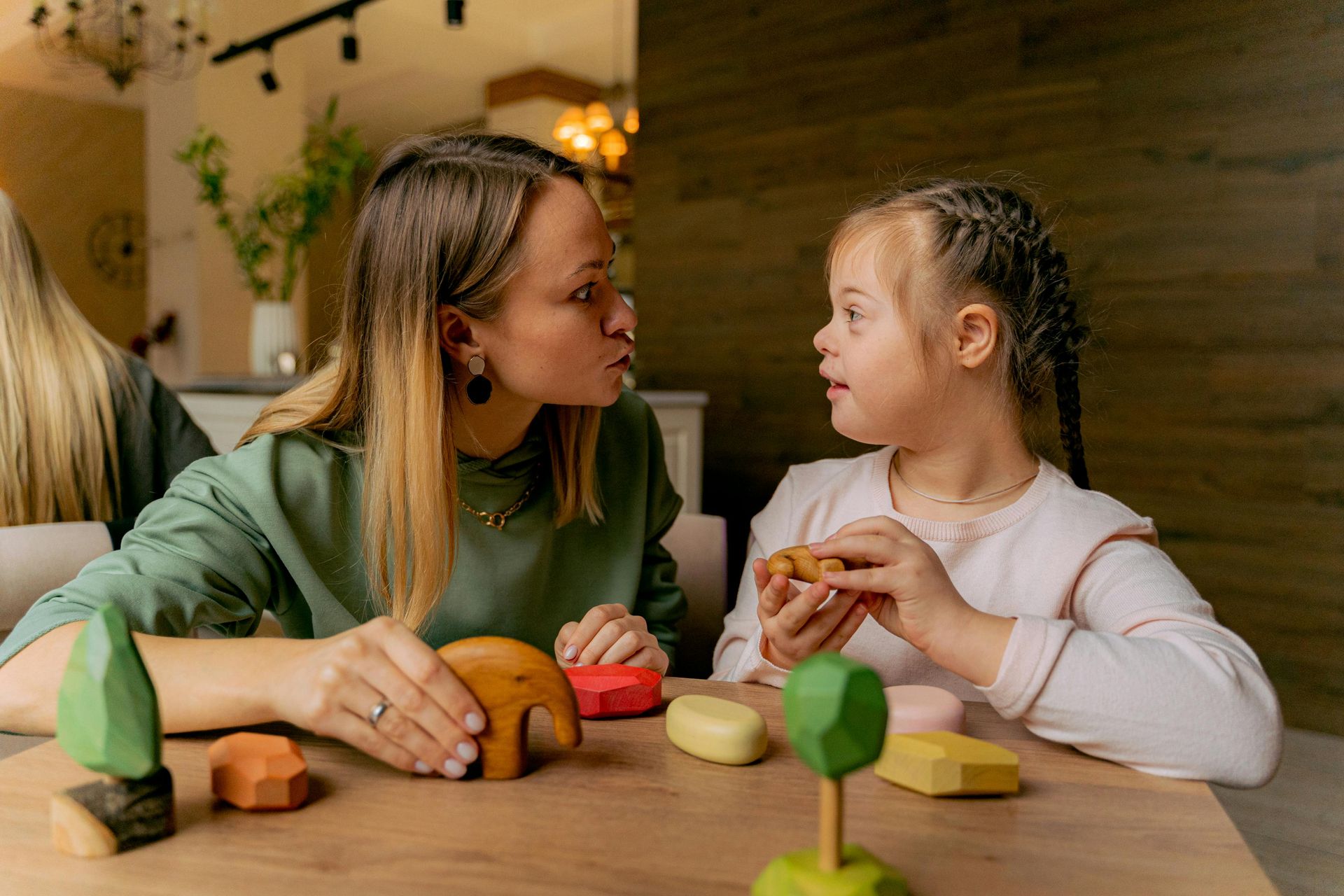Creating a Strong Foundation: The Importance of Early Literacy in Preschool Education

The first few years of life are critical for laying the foundation of a child’s literacy skills. The skills children develop during their preschool years directly impact their ability to read, write, and understand language in their later academic years. At Kid’s Avenue Learning Center, we believe that early literacy experiences are essential for a child’s success in school and beyond. By nurturing a child’s love for language, books, and stories from an early age, we set them up for a lifetime of learning.
What is Early Literacy?
Early literacy refers to the skills and knowledge children acquire in their preschool years that prepare them for reading and writing. These skills include listening, speaking, understanding, and interacting with print. Early literacy doesn’t just mean knowing how to read or write—it encompasses all the building blocks that contribute to the development of reading and writing skills, such as recognizing letters, understanding sounds, and having a rich vocabulary.
At Kid’s Avenue, we aim to foster early literacy through a variety of activities designed to engage children in language and communication. We introduce children to books, reading, storytelling, and other language-rich experiences that help them understand the structure of language and develop a lifelong love for reading.
Building Language Skills Through Read-Aloud
One of the most effective ways to foster early literacy is through read-aloud sessions. When children hear stories read aloud to them, they are introduced to new vocabulary, sentence structures, and concepts. Reading aloud is also an interactive activity, as children are encouraged to engage with the story, ask questions, and discuss the characters and plot.
At Kid’s Avenue, our teachers regularly read stories to the children, encouraging them to participate by pointing to pictures, repeating words, and answering questions. These interactions help children build comprehension skills and develop an understanding of the narrative structure of stories. As they listen to stories, children also begin to recognize the importance of print and understand that written words have meaning.
The Role of Letter Recognition and Phonics
One of the foundational components of early literacy is letter recognition. Children need to learn the names and sounds of the letters of the alphabet before they can begin to read and write. At Kid’s Avenue, we integrate letter recognition activities into our daily routine, using songs, games, and interactive activities to help children become familiar with letters and their corresponding sounds.
Phonics is another key element of early literacy. Phonics teaches children the relationship between letters and sounds, which is essential for decoding words. Through activities like matching letters to sounds, blending sounds to form words, and rhyming games, children begin to develop the skills necessary for reading and writing.
Storytelling and Vocabulary Development
In addition to reading books, storytelling plays an important role in developing early literacy. Storytelling helps children understand the structure of language and introduces them to a wider range of vocabulary. At Kid’s Avenue, we encourage children to tell their own stories, whether through verbal storytelling or creative arts such as drawing or acting out scenes.
By engaging in storytelling, children learn to organize their thoughts, use language to communicate ideas, and express themselves creatively. This process also helps expand their vocabulary, as they are exposed to new words and phrases while narrating or listening to stories.
Building a Print-Rich Environment
At Kid’s Avenue, we believe that the environment plays a crucial role in promoting early literacy. A print-rich environment is one in which children are surrounded by written words, such as labels, signs, and books. By providing a print-rich environment, we encourage children to develop an understanding that written words convey meaning.
Our classrooms are filled with books of all types—fiction, nonfiction, poetry, and picture books—along with print materials such as charts, labels, and posters. These materials help children connect written words with their everyday experiences and encourage them to interact with print in meaningful ways.
The Importance of Play in Early Literacy
While structured learning experiences are important, play also plays a critical role in developing early literacy skills. Through play, children engage with language in an informal yet powerful way. For example, when children engage in pretend play, they use language to create narratives, solve problems, and interact with their peers. This type of imaginative play not only builds their social and emotional skills but also helps develop their language and communication skills.
At Kid’s Avenue, we encourage play-based learning activities that involve language and literacy, such as playing with letter blocks, using puppets for storytelling, or creating simple books. These play-based activities provide a fun and engaging way for children to practice and strengthen their literacy skills.
The Role of Teachers in Early Literacy Development
Teachers at Kid’s Avenue play an integral role in fostering early literacy development. Our educators are not only responsible for reading to the children but also for creating an environment where literacy is woven into every aspect of daily life. Teachers use songs, rhymes, finger plays, and interactive reading sessions to engage children and encourage their love of language.
In addition, our teachers offer individualized support, recognizing that each child develops at their own pace. Whether a child is just starting to recognize letters or is beginning to blend sounds into words, our teachers provide the appropriate guidance and support to meet each child’s needs.
Conclusion
Early literacy is a critical component of a child’s development, laying the groundwork for future academic success. At Kid’s Avenue Learning Center, we are committed to providing a rich, language-filled environment that encourages children to explore the world of words, stories, and books. By focusing on early literacy skills such as letter recognition, phonics, vocabulary development, and storytelling, we ensure that each child is prepared for a lifetime of learning and discovery.





















